CONSTITUTION AND BYLAWS
OF THE
SOUTH CAROLINA ASSOCIATION OF TECHNICAL
COLLEGE COMMISSIONERS, INC.
ARTICLE I – NAME
The name of the organization shall be the South Carolina Association of Technical College Commissioners, Incorporated, hereinafter referred to as the “Association.”
ARTICLE II – MISSION
The South Carolina Association of Technical College Commissioners’ mission is to promote the education and training of South Carolinians and to advocate for all South Carolina Technical Colleges.
ARTICLE III – PURPOSES
The association ensures the effectiveness of the system’s area commissioners and their colleges by educating commissioners, advocating for college needs and priorities at the state level, and providing a unifying link between the institutions that allows information and best practices to be shared.
ARTICLE IV – PRINCIPAL OFFICES
To facilitate the mission and purposes of the Association, the principal offices of the Association shall be maintained within the administrative offices of the State Board for Technical and Comprehensive Education and/or at such other locations as may be determined by the Association’s Board of Directors.
ARTICLE V – MEMBERSHIP
Each duly appointed member of an Area Technical College Commission is automatically a member of the Association provided the Commission has paid its annual membership dues. Dues will have to be received prior to the beginning of the fiscal year or the appointed member will not be able to vote until the dues are paid.
Each Area Technical College Commission, through a process established by the respective Commission, shall name one Commissioner as a representative member of the Association and shall notify the Association of its selection. Should the director be unable to attend an Association meeting, his or her Commission may choose an alternate who shall have voting privileges.
The Chairperson, or designee, of the South Carolina State Board for Technical and Comprehensive Education and the Chairperson, or designee, of the South Carolina Council of Technical College Chairs, shall be ex officio members of the Association. Ex officio members shall be entitled to all membership privileges except elective office and voting.
It is vital for the member college representative to attend a minimum of 75% of scheduled quarterly meetings throughout the year to maintain an active membership with full privileges. There are four scheduled meetings.
Non-payment of dues by an Area Commission will establish that the college commission, as an ex officio affiliate member, is entitled to all membership privileges except elective office and voting.
ARTICLE VI – BUDGET
The annual membership dues shall be determined by the Finance Committee and approved by the Executive Committee to be taken to the Board of Directors for approval.
The annual membership dues shall be determined by the Executive Committee and approved by the Board of Directors. The dues shall consist of a basic amount per Commission plus a prorated amount based on each member college’s ratio of allocated funds.
The fiscal year of the Association shall run concurrently with the State fiscal year, namely, from July 1 through June 30.
ARTICLE VII – ASSOCIATION OFFICERS
The officers of the Association shall be Chair, Past-Chair, Chair-Elect, Treasurer, and Secretary.
The officers of the Association shall be elected from the Board of Directors. All officers shall be elected for a term of two years.
The election of officers shall be conducted at the annual June meeting. The Chair, Chair-Elect, Treasurer, and Secretary shall be elected by a majority of the members of the Board of Directors.
The officers shall perform the duties that pertain to their respective offices as outlined below and such additional duties as may be specified by the Board of Directors. In the case of a vacancy in the office of Chair-Elect, Treasurer, or Secretary, the vacancy shall be filled by a majority vote of the Board.
A. The Chair shall be the presiding officer of the Board of Directors. In addition, the Chair shall serve as the presiding officer of the Executive Committee and shall be able to cast a vote on all matters before both bodies. The Chair shall have the power to appoint the members of any committees established by the Association. The Chair shall have such other duties as may be assigned by the Board or by the Executive Committee. The Chair has the authority to call meetings of the Board.
B. If the Chair is absent from a meeting, the Chair-Elect shall serve as the presiding officer. If the Chair can no longer serve for any reason, then the Chair-Elect shall automatically assume the office of Chair for the remainder of the Chair’s term. The Chair-Elect shall be a voting member of the Executive Committee and the Board and shall serve as Chairperson of the Governmental Relations Committee.
C. The Treasurer of the Association shall collaborate with the Executive Director and be responsible for overseeing the management of the Association’s finances and shall be responsible for the investment and security of all the Association’s funds. The Treasurer shall request and distribute a quarterly report of expenditures and receipts to the Board. This report shall include a financial statement and a comparison of current and year-to-date expenditures as they relate to the annual budget. The Treasurer shall serve as Chairperson of the Finance Committee and be a voting member of the Executive Committee and the Board. The Board may designate an individual to function under the direction of the Treasurer to prepare reports and manage other financial matters.
D. The Secretary shall collaborate with the Executive Director to oversee the preparation of accurate minutes for each meeting of the Board and shall be responsible for presenting those minutes to the Board for its approval. The Secretary shall be a voting member of the Executive Committee and the Board and shall serve as Chairperson of the Awards Committee. The Board may designate an individual to function under the direction of the Secretary to prepare minutes and manage other administrative matters.
ARTICLE VIII – BOARD OF DIRECTORS
The officers of the Board of Directors shall be the same as the officers of the Association.
The Board of Directors shall be composed of one director from each member Area Commission. The directors shall be named before the June meeting, shall serve two-year terms, and may be reappointed. Should a director leave an Area Commission, that Area Commission will select a replacement.
The Chairperson, or designee, of the South Carolina State Board for Technical and Comprehensive Education and the Chairperson, or designee, of the South Carolina Council of Technical College Chairs, shall be ex officio members of the Board of Directors. Ex officio members shall be entitled to all membership privileges except elective office and voting.
The Board may serve as a forum to discuss issues affecting the colleges, the Association, or the State Board for Technical and Comprehensive Education.
The Board shall have authority to take a leadership role in establishing liaisons between the Association and members of the State’s legislature, legislative staff, and the executive branch.
The Board shall also have authority to act on behalf of the Association on the hiring of personnel and the expenditure of funds.
The Executive Committee shall have the authority to determine the recipients of annual awards presented by the Association.
The Board with assistance from the Executive Director shall be responsible for reviewing and recommending policies, personnel appointments, projects, the annual budget, major expenditures, and other matters necessary for the effective operation of the Association.
The Board of Directors shall meet at least quarterly.
ARTICLE IX – EXECUTIVE COMMITTEE
The Executive Committee of the Association shall be composed of the Association’s elected officers and the immediate past Chair of the Board of Directors.
The Executive Committee shall possess such authority as may be delegated by the membership or the Board of Directors, including acting on behalf of the Association concerning various issues and policies affecting the Association.
The Executive Committee shall meet no less than quarterly.
ARTICLE X – EXECUTIVE DIRECTOR
An Executive Director may be chosen at the discretion of the Board of Directors. The Executive Director shall be the chief executive officer and shall conduct the policies and directions of the Association and the Board of Directors, including the administration of these bylaws.
The Executive Director shall establish, with the consent of the Board of Directors, administrative, financial, and personnel policies to operate the Association and the programs and activities needed to conduct the purpose and function of the Association.
ARTICLE XI – MEETINGS
The Chair of the Association or one-fourth (1/4) of the Board of Directors may call a Board or Executive Committee meeting at any time to discuss or decide matters of mutual concern to the Area Commissions.
Notwithstanding any other provisions of these by-laws and at the discretion of the Chair, meetings of the Board of Directors or Executive Committee may be conducted in person, by telephone, or by video conference.
When voting takes place on matters concerning the entire membership at Association meetings, the Chairperson of each area commission or his/her designee shall be entitled to cast one vote on behalf of the Area Commission.
At Board of Directors meetings, or by a poll of the membership of the Board of Directors, each director shall be entitled to cast one vote on behalf of his/her Area Commission.
The Chair shall give each member of the Board of Directors and/or Executive Committee no less than three days’ written (via US or courier mail service or via e-mail) notice of regular or special meetings. A simple majority of directors shall constitute a quorum.
The Association shall meet at least quarterly.
ARTICLE XII – RECORDS AND REPORTS
The Association shall keep correct and complete financial records and minutes of the proceedings of the Association, the Board of Directors, and other standing or ad hoc committees. Proper document management includes the storage of records in an appropriate, secure format, which may include online storage, for no less than seven years.
The Association shall ensure the maintenance of all applicable local, state, and federal filing requirements and official records of the Association.
ARTICLE XIII – COMMITTEE APPOINTMENTS
The Chair shall appoint committee members as necessary. The Association may use standing and ad hoc committees. Some individuals may serve as committee members because of their election to an Association office or because their presence is mandated by the Association’s bylaws. The standing committees of the Association shall include:
A. Governmental Relations – This committee is responsible for studying and recommending positions on matters pending before the South Carolina General Assembly and other governmental bodies. The committee shall take a leadership role in establishing liaisons between the Association and members of the State’s legislature, legislative staff, and the executive branch.
B. Nominating – This committee is responsible for recommending to the Association’s Board of Directors a suggested slate of officers to include one nominee for each office. The Chair of the Association will appoint a chair of the nominating committee. The committee chair will select two additional members to serve on the nominating committee.
C. Finance – The Finance Committee shall be composed of the Treasurer of the Association, who shall serve as Chairperson, and at least two other members of the Board of Directors. The Executive Director is responsible for the preparation of the annual budget with the Finance Committee and presenting it to the Executive Committee and then, the Board for approval. The Finance Committee will prepare a budget to be submitted to the Executive Committee as designated in Article VI.
D. Awards – The Awards Committee shall be composed of the Executive Committee, Executive Director, and up to three additional members to be determined by the Executive Committee. The committee is responsible for reviewing all applications and submitting a score by the scale set forth by the scales presented. Any member with an applicant from their local college must abstain from voting in said category.
Recommendations for policies or actions made by any Association committee shall be submitted to the Executive Committee for consideration. The Executive Committee may express concurrence or reservations about such policies or actions and shall then forward the committee recommendations along with a record of its action to the Board for a final determination.
All appointments to standing committees shall terminate at the end of the fiscal year. Appointments to ad hoc committees shall terminate when the specific assignment has been performed.
No committee shall create any financial liability for the Association unless such expenditure has been approved both as to the purpose and as the maximum amount by the Board of Directors.
ARTICLE XIV – AFFILIATIONS
The Association, with the approval of the Board of Directors, may affiliate with other organizations; function as an advisory body to State agencies or institutions; and participate in programs and activities of other organizations, agencies, and institutions.
The Association may appoint individuals to serve as liaisons with units of the State government that in some way affect the Association. Liaisons may be appointed regularly to represent the Association before State agencies or organizations as appropriate.
ARTICLE XV – AMENDMENTS
Amendments and changes to the Constitution and Bylaws shall be reviewed by the Executive Committee of the Association and submitted for consideration 10 days in advance of the Association’s Board of Directors vote. Approval requires a two-thirds vote of the Board. Changes become effective after receiving such a margin of vote.
2. The Association shall be governed by documents in the following order of precedence:
A. Statutes of the State of South Carolina. Articles of Incorporation issued by the Secretary of State. Section 33-31-202 of the South Carolina Code of Laws
B. The Constitution and Bylaws of the Association.
C. The policies and procedures of the Association.
D. Robert’s Rules of Order Newly Revised.
ARTICLE XVI – INDEMINIFICATION
The Association shall maintain the appropriate insurance and shall indemnify any of its officers, employees, and agents, whether elected or appointed, against any tort claim or demand, whether groundless or otherwise, arising out of an alleged act or omission occurring in the performance of duty. The provisions of this section do not apply in case of malfeasance in office or willful or wanton neglect of duty.
ARTICLE XVII – DISSOLUTION OF THE ASSOCIATION
In the event of the Association’s dissolution, the Board of Directors of the Association shall, after paying or making provisions for the payment of all the liabilities of the Association, dispose of all the remaining assets to The South Carolina Technical College System.
AMENDED AND APPROVED
BY THE BOARD OF DIRECTORS
EFFECTIVE: March 3, 2021
CCAE
The Community College Association Executives (CCAE) is comprised of the Executive Directors of community college state associations and includes approximately 25 active members. For more information please click here.
















